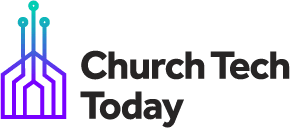Artificial intelligence technologies like generative AI are advancing rapidly, posing timely implications for society and the church. As Christians seek to engage gen AI faithfully, theological and biblical reflection are things I believe we can have more of in terms of public discussion and development. Here are some thoughts I have been jotting down across this broad topic in hope to spark constructive conversations and also help clarify my thoughts and see how they can evolve further to be helpful to myself and others.

Made In God's Image: Understanding Our True Uniqueness As Humans
To develop wisdom around AI, we must consider basic theology of humanity. It seems that core to biblical teaching is that humans alone are made in the image of God (Gen 1:26-27). This distinguishes us from even the most sophisticated AI. As thoughtful Christians, we should take care not to confuse or intend to rely on AI as if its abilities of generative creativity reflect the imago dei. There is no humanity in AI, but what does that translate to in terms of limitations and expectations we put on it? There can probably be a list of generally accepted scenarios we are willing to put it in as well as scenarios we refuse to put it in.
Many naysayers to AI say there is no Spirit, or spiritual component to anything generated with AI. But is that fully true? As beings with a capacity for reason and imagination and the creators of this technology, the development of AI does stem from God-given human gifts. Does the Holy Spirit suddenly not work in pixels?
As the church engages generative AI models, articulating a strong biblical understanding of these types of questions and issues will be key.
Called To Stewardship Of Technology
The Bible also reveals that humans are appointed by God to cultivate and keep creation (Genesis 2:15). This implies a call to steward technological advances like AI with wisdom and care.
But at the same time, the Bible repeatedly warns against unchecked human pride (Proverbs 16:18). Listen to Tim Keller sermons and you'll find human pride to be a core fundamental thread in his teachings.
So how do we approach this? Developing godly stewardship requires:
- Self-awareness about the limits of human capacity for innovation and ingenuity
- Caution regarding technology’s risks and flaws, and humans' tendency to overestimate our power to self-contain ourselves
- Awareness of the potential for AI to spread harmful misinformation, and made dangerous decisions with permanent and destructive outcomes, if deployed without proper discernment
Truth, Discernment, and Ethics
A core calling of the church is to serve as a moral compass pointing to God's eternal truth and wisdom. Yet generative AI has no innate moral framework. It doesn't think or feel. While these systems can simulate human speech and logic, they lack spirituality or a conscience. There is a real danger that unchecked AI could be weaponized to manipulate emotions and human weaknesses in the service of greed or oppression. Therefore, the church must approach generative AI technology with eyes wide open rather than naivete. We can advocate for ethical constraints and accountability measures when deploying AI in society. The church can also equip Christians to have discerning minds, able to compare the flawed wisdom of algorithms skewed in the opposite direction of human flourishing as well as the dangers of AI hallucinations creating and propagating false facts and exploitive narratives with the life-giving truth of Scripture. With the Spirit's guidance, we can avoid contributing to deception and instead promote justice, mercy, and life-serving activities.
Human Flourishing Objectives
Biblical justice involves righteousness, mercy, and care for the marginalized (Micah 6:8). The concept of shalom describes human flourishing in God’s intended vision and plan. While AI may benefit society in many ways, church leaders must ensure it also promotes justice, dignity, and healthy relationships. If productivity alone becomes the sole or exalted measure of technological advancement, we risk spiritual absence. Generative AI technology has huge potential for misunderstanding, deception, and displacement of human relationships. Our individualistic, consumeristic society has increasing risk of negative outcomes due to increased isolation, fewer shared experiences and understanding, weaponized language and culture, etc., when we apply AI to accelerate and amplify what's already happening in a negative trending line for society. This is where Christians can be seen as set apart, intentionally building constructive counter-cultural, grace-filled AI-empowered initiatives to become the light on a hill for so many in need of hope.
Ministry Applications Call for Discernment
Within the church, intriguing possibilities exist for leveraging AI creatively in ministry roles, including teaching, preaching, evangelism, communications, counseling, and operations. However, utilizing generative AI tools well requires extensive conversations, brainstorming, education, piloting, evaluation, and refinement to address risks that are seen (and unseen). Connecting with thousands of peers in communities like the AI For Church Leaders Facebook Group, or bringing resources like the AI Discovery Expo training platform, or Gloo's AI hub, will be critical in this learning phase that everyone is going through together. For spiritual contexts like pastoral ministry, wisdom is urgently needed to preserve the irreplaceable value within human relationships and counsel. Clear policies and best practices must be developed through ethical reflection on AI’s spiritual and relational impacts. Every organization needs an AI policy to start, which can be a living and evolving document.

Engaging AI Faithfully and Prophetically
The bible offers timeless guidance as we enter this new technological frontier. We have the chance to approach this latest innovation front of AI with thoughtful discernment rather than hype, fear, or blind acceptance. If grounded in doctrines of human dignity, divine truth, justice, and human flourishing, the church can faithfully engage technologies like generative AI in ways that honor God and benefit neighbors. With humility and care, we can be a prophetic voice of caution yet also hope in society’s AI journey ahead. This is a huge moment to become relevant to the public square and provide hope to countless people in every zip code and across the globe.







